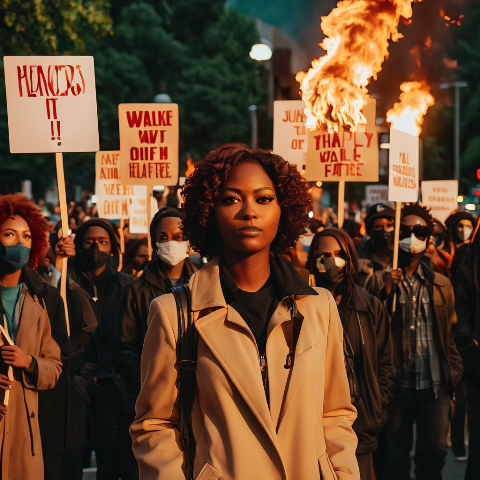Colombian Govt Called to Address Systemic Racism Against People of African Descent
“Colombia must engage in effective transformative change, to restore dignity, repair invisibility and uphold the recognition and human rights of people of African descent,” the Working Group emphasized.

UN experts have called on the Colombian government to address the systemic and institutional racism that people of African descent have endured for centuries. Following a 10-day visit to the country, the Working Group of Experts on People of African Descent issued a statement urging Colombia to implement transformative changes to restore dignity, repair invisibility, and uphold the recognition and human rights of people of African descent.
“Colombia must engage in effective transformative change, to restore dignity, repair invisibility and uphold the recognition and human rights of people of African descent,” the Working Group emphasized. They highlighted that with a new government committed to justice and human rights, Colombia has a unique opportunity to break the cycle of institutionalized, structural, and systemic discrimination and racism.
State Abandonment and Lack of Autonomy
The experts pointed out that discrimination and racism in Colombia are characterized by state abandonment and a lack of autonomy and self-governance for people of African descent. Although Colombia has adopted legal provisions, policies, and strategies to protect human rights and address violations, and its courts have ruled in favor of people of African descent, these measures have not sufficiently transformed their daily lives.
Persistent Challenges
The Working Group identified several areas where people of African descent face significant challenges, including poverty alleviation, security, education, housing, employment, access to basic services, freedom of movement, access to justice, political and public participation, representation, self-governance, and land rights. They stressed that Colombia must guarantee these rights without violence and discrimination.
Testimonies of Suffering and Violence
During their visit, the experts heard testimonies from people of African descent, including women, youth, human rights defenders, and LGBTIQ+ individuals. These testimonies described regions inhabited by people of African descent as 'race-sacrifice zones' characterized by violence, confinement, and neglect. The testimonies detailed experiences of sexual and gender-based violence, rape as a weapon of war, macro-aggressions, kidnappings, feminicides, brutal killings, extortion, dispossession of lands, forced recruitment of children into armed groups, enforced disappearances, displacement, mutilation, and the use of children for illegal activities. These conditions have led to mistrust of state and local authorities, including the armed forces, for failing to protect these communities and ensure adequate living standards.
“We are violated and it’s time to stop,” said one woman of African descent. “Our hearts hurt,” another explained, expressing the community's deep sense of suffering and resistance rather than resilience.
Urgent Need for Structural and Institutional Reform
The experts emphasized the need for structural and institutional reforms to ensure that people of African descent in Colombia can exercise their rights fully and freely. They urged Colombian authorities to foster differential ethnic approaches to level up redress and to ensure meaningful participation and consultations for people of African descent in all processes and policies that may affect them. This includes the implementation of the 2016 Peace Agreement, which the experts noted has significant implications for people of African descent who have been the biggest victims of conflicts in Colombia, giving these conflicts a racialized connotation.
The Working Group's visit to Colombia and their subsequent findings highlight the urgent need for comprehensive and systemic reforms to address the deep-rooted racism and discrimination faced by people of African descent. Their recommendations underscore the importance of government commitment to justice, human rights, and meaningful engagement with affected communities to create a more equitable and inclusive society.
- READ MORE ON:
- Colombia
- LGBTIQ
- African Descent
- Racism
- human rights










